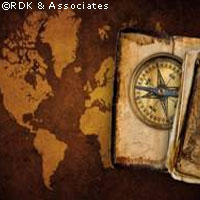EU and US develop common Galileo-GPS signal
The European Union and the United States have decided to make their satellite navigation systems, Galileo and Global Positioning System (GPS), compatible and interoperable. The two blocs agreed on a common radio frequency for use by their two systems to provide more accurate images and information. Building on the cooperative agreement on Galileo and GPS signed between the two in June 2004, a joint working group overcame technical challenges to design the interoperable civil signals that will also protect common security threats. 'The agreement to jointly use ... these interoperable civil signals demonstrates the close US and EU cooperation since 2004 to ensure that the Global Positioning System and Galileo are compatible and interoperable at the user level,' said the European Commission in its statement. The European Commission hopes the agreement will help to ensure that Galileo, which has yet to be launched, will be accepted alongside its popular rival, GPS. The agreement's success could also depend on whether the makers of receivers design devices that integrate the two systems. 'Today's announcement underscores Europe's commitment to interoperability between Galileo and GPS and to managing the Galileo program in an innovative partnership with the United States,' said Matthias Ruete, the Director-General at the Commission's Energy and Transport Directorate-General. 'The international GNSS Global Navigation Satellite System] community, including the U.S. will have full and transparent access to information on how to access Galileo and GPS services. This should facilitate the rapid acceptance of Galileo in global markets side by side with GPS.' The US has 30 satellites orbiting the earth, transmitting signals that allow users to pinpoint their own location through devices such as car navigation systems. The EU also plans to have 30 satellites in space in 2010 with a fully operational Galileo system by 2012. Aside from helping drivers navigate, the system would be used in search and rescue missions, keeping track of crop yields and monitoring the environment. Galileo is a joint European Commission-European Space Agency (ESA) initiative to be financed through a public-private partnership. In June, EU ministers said public money would have to go towards making up the €2.4 billion shortfall, after the private companies in the consortium were unable to agree on how to share the financial risks involved.



